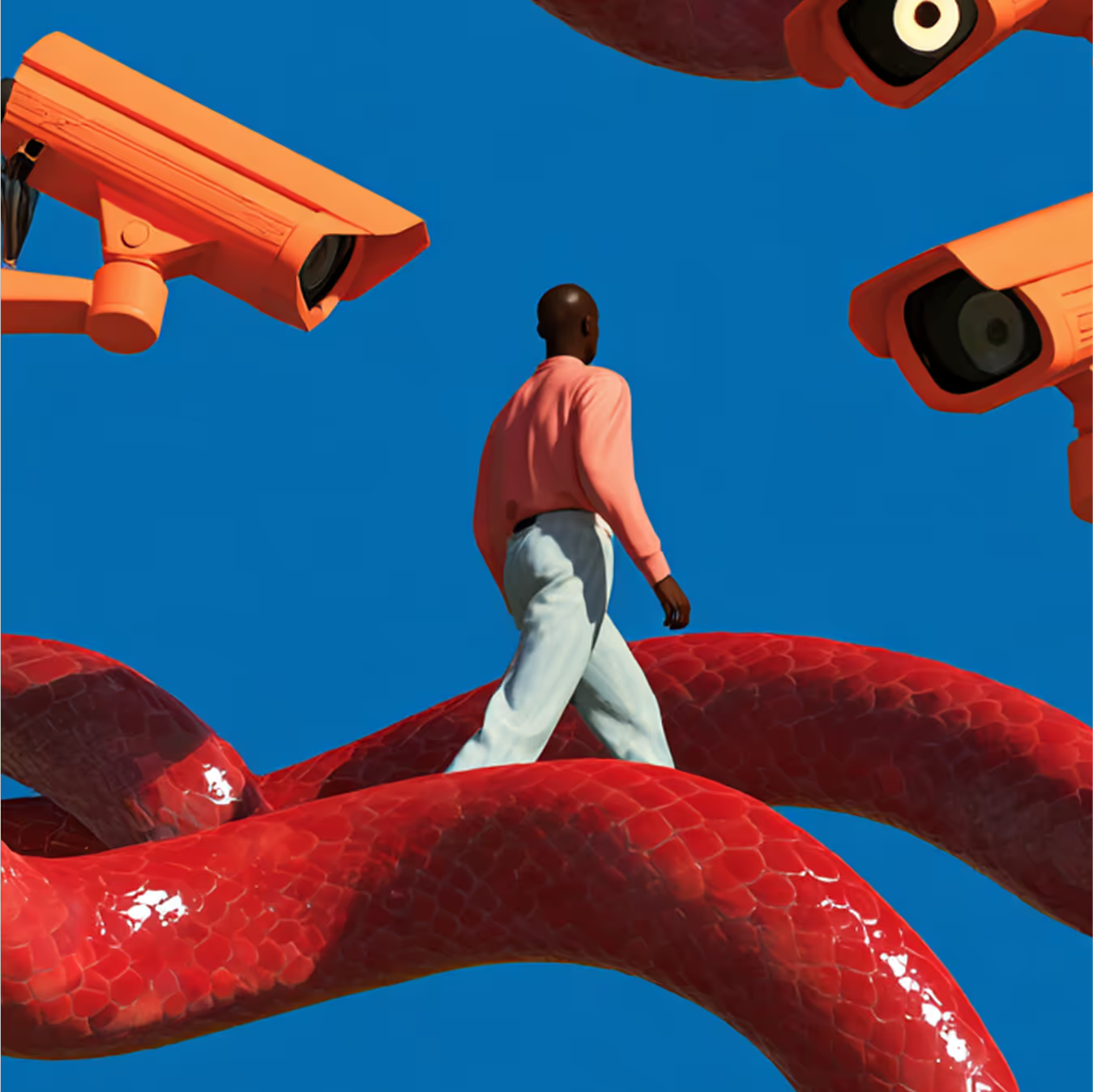
“They’re Watching Me”: Gang Stalking, Internet Delusions, & the Modern Mindf*ck

Your neighbor blinks too slowly.
Your Lyft driver takes one wrong turn and says “sorry” like he means something else.
The guy at the supermarket says, “See you tomorrow,” and suddenly, you can’t remember ever telling him your name.
A silver sedan is parked across the street again — the third day in a row. No one gets out. The engine idles. Your phone buzzes: a targeted ad for thermal curtains. You didn’t say anything about curtains.
You’re being watched — in the rotting tooth, hum-in-the-wall, your-shadow-has-a-second-shadow way.
There’s a frequency you’ve tuned into, and now you can’t untune. The static is everywhere: in your mentions, inbox, the throb in your left temple, the weird deja vu when you pass a stranger who looks like they know too much.
It’s the new American psychosis. The broadcast is open. The eyes are in every device. The panic is personalized.
This is gang stalking — not the subreddit, not the TrueAnon episode, not the punchline. It's the real condition, the worldview, the logic of a rotting empire in WiFi form. This phenomenon happens when the collective psyche of the internet decides that yes, actually, you are the main character, and the whole cast wants you dead.
You’re not special.
You’re just next.
Let’s begin.
Welcome to the Paranoid Internet
The year is 2025. Everyone’s surveillance-aware. Everyone’s algorithm-exhausted. Everyone’s got the ambient hum of “maybe it’s not a coincidence” playing in the back of their skull.
But somewhere between “my phone is listening to me” and “there’s a shadow government implanting thoughts through TikTok filters,” a beast has reared its head — gang stalking.
It’s not new. But it has mutated.
Originally a niche conspiracy theory centered around the belief that a person is followed, surveilled, and psychologically harassed by an organized group (friends, strangers, cops, neighbors, the feds, take your pick), gang stalking has slithered into our For You pages and Discord servers — reborn as a crowdsourced delusion in a hyperconnected hellscape.
And it’s thriving.

What is Gang Stalking?
Here’s the recipe:
- Take one brain, preferably extra anxious.
- Add 10 hours a day of unfiltered algorithmic content.
- Stir in financial instability, healthcare inaccessibility, and the terminal erosion of community trust.
- Let simmer in isolation until aromatic.
What bubbles up is a belief — not just that you’re being watched, but that you’re the target of a coordinated psychological operation. And online, there are communities ready to confirm it.
We're not talking tinfoil hats. We're talking Reddit threads like r/Gangstalking with 70k members, TikTok hashtags like #gangstalking with millions of views, support groups, and play-by-plays of “street theater” (i.e., when strangers act “too in sync” to be real).
These people are dead serious.
“Has anyone who has been gangstalked been harassed by coordinated use of vanity license plates while driving? This has been happening to me in Chicago for two years, and I am curious if anyone else has heard of this or seen this behavior.” — Anonymous post, r/Gangstalking
Is it schizophrenia? Is it an alternate reality game gone too far? Is it... just the way the internet warps our brains now?
Yes.
Mass Paranoia is not a Glitch — it’s the Product
Gang stalking is just the symptom. The disease is mass paranoia, and the internet is its primary transmission vector.
The system benefits from our not trusting anyone. You’re easier to manipulate when you think everyone else is already playing a game you’re excluded from. You’re more pliable when you feel hunted. That cortisol drip keeps you scrolling, doom-spiraling, searching for meaning in the noise.
And platforms? They don’t give a shit. If it drives engagement, it lives.
TikTok doesn’t care if your FYP makes you think your microwave is a listening device. Instagram looks the other way when the wellness guru you follow suddenly starts talking about “energetic gang signatures.” YouTube is unbothered that the algorithm radicalizes you into believing that helicopters are tailing you because you know “too much” about 5G.
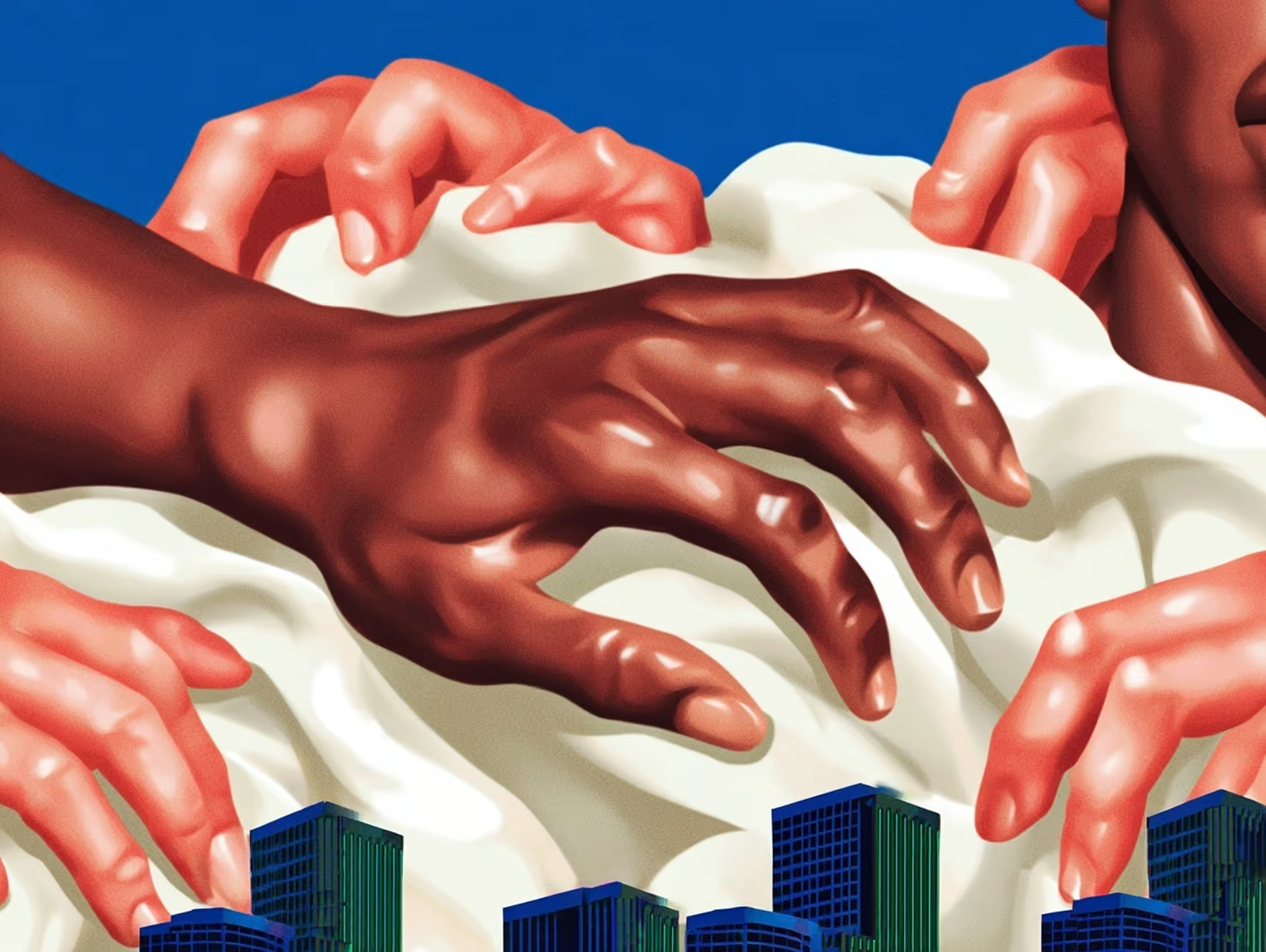
Examples from the void
YouTube is crawling with channels like Real Gang Stalking, where individuals document their supposed harassment in real-time. One of the most prolific, "Targeted Citizen," has released hundreds of videos alleging he's being followed, tracked, and attacked with directed energy. Commenters alternate between support and derision.
A recent example is a May 2025 video from YouTuber and self-identified targeted individual ClarityWithJTarot, based in Canada. In the video, titled “I have been gang-stalked since 2020 and need help raising awareness about this situation” — she describes what she claims is a four-year campaign of harassment including blacklisting, slander, street theater, job sabotage, and even attempts to tamper with her food using epinephrine. She alleges these acts were orchestrated after attempting to take her ex to court for assault.
The channel has over 78,000 subscribers, and the video got over 14,000 views in just a few days. These testimonies often get dismissed as delusional, but they continue to proliferate, untreated, unmoderated, and uncontained.
One widely reported tactic within the gang stalking belief system is what's known as "synchronized noise harassment." According to self-identified targeted individuals, this involves repeated, precisely timed noises — stomps, bangs, or taps — designed to startle or unsettle a person. Often, the target claims these noises happen immediately after waking up, opening a fridge, or turning on a light — mundane activities suddenly paired with an orchestrated acoustic cue.
The idea is that these triggers create conditioned associations, making the individual increasingly paranoid or reactive over time. Advocates for this theory argue that patterns like these are only achievable through real-time surveillance of the target’s daily life.
YouTube creator realgangstalking486 posted footage of his experience living with this.
While there is no verified evidence that this type of organized noise harassment occurs, the belief has gained significant online traction. Communities discuss it as proof of internal home surveillance — metaphorical observation and literal, 24/7 spying.
r/Gangstalking is a rabbit hole of paranoia: photos of parked cars, footage of flickering lights, and dogs walked at suspicious intervals. Attempts at moderation often result in accusations of being a plant.
As for Havana Syndrome? A National Academies of Sciences report concluded that directed energy might be a plausible explanation for symptoms among U.S. diplomats. Gang stalking forums took this as gospel. See? They are targeting us!!
This isn’t roleplay or ARG fandom. These people have cracked minds trying to make sense of a terrifying, watched, and hostile world — but not for the reasons they think.
Why it’s going to get worse
Mass paranoia thrives under three conditions:
- Uncertainty.
- Isolation.
- Information overload.
You’re alone in your room. You haven’t touched grass in three days. Your government is gutting social programs. Your rent is 70% of your income. Your phone is serving you ads for therapy you can’t afford, from apps that are watching you.
And you’re sleep-deprived, angry, overstimulated, and, of course, chronically online.
So you start to connect the dots that were never meant to be connected. Because the truth — that the world is chaotic, unfair, and indifferent — is unbearable. It’s more comforting to believe someone is doing this to you than to accept that no one’s in control.
The Mental Health Collapse
There’s no hotline for “I think my neighbors are part of a CIA psyop.” No mental health app can interrupt your TikTok spiral and ask, “Hey, you good?” (yet?).
So people build narratives to survive.
TikTok aestheticizes delusion. YouTube monetizes it. Reddit validates it. Instagram brands it.
And it’s not going off air anytime soon.
Paranoia becomes a scaffolding to organize fear. Persecutory delusions often get exacerbated by social defeat, urban living, and — yep — digital environments.
Studies indicate that a substantial portion of stalking victims, ranging from 37% to 78%, may meet criteria for PTSD, but only a small percentage, approximately 24%, are assessed for it by healthcare professionals.
TikTok will de-platform you for misinformation about vaccines, but not for publicly unraveling into a paranoid fugue state with 100K followers cheering it on. There’s more infrastructure in place to moderate a shirtless thirst trap than there is to catch someone spiraling into psychosis in real-time.
When delusion becomes content, it’s no longer a personal emergency — it’s a performance. And performances don’t get crisis intervention. They get comments.
And instead of stepping in, the internet amplifies it.
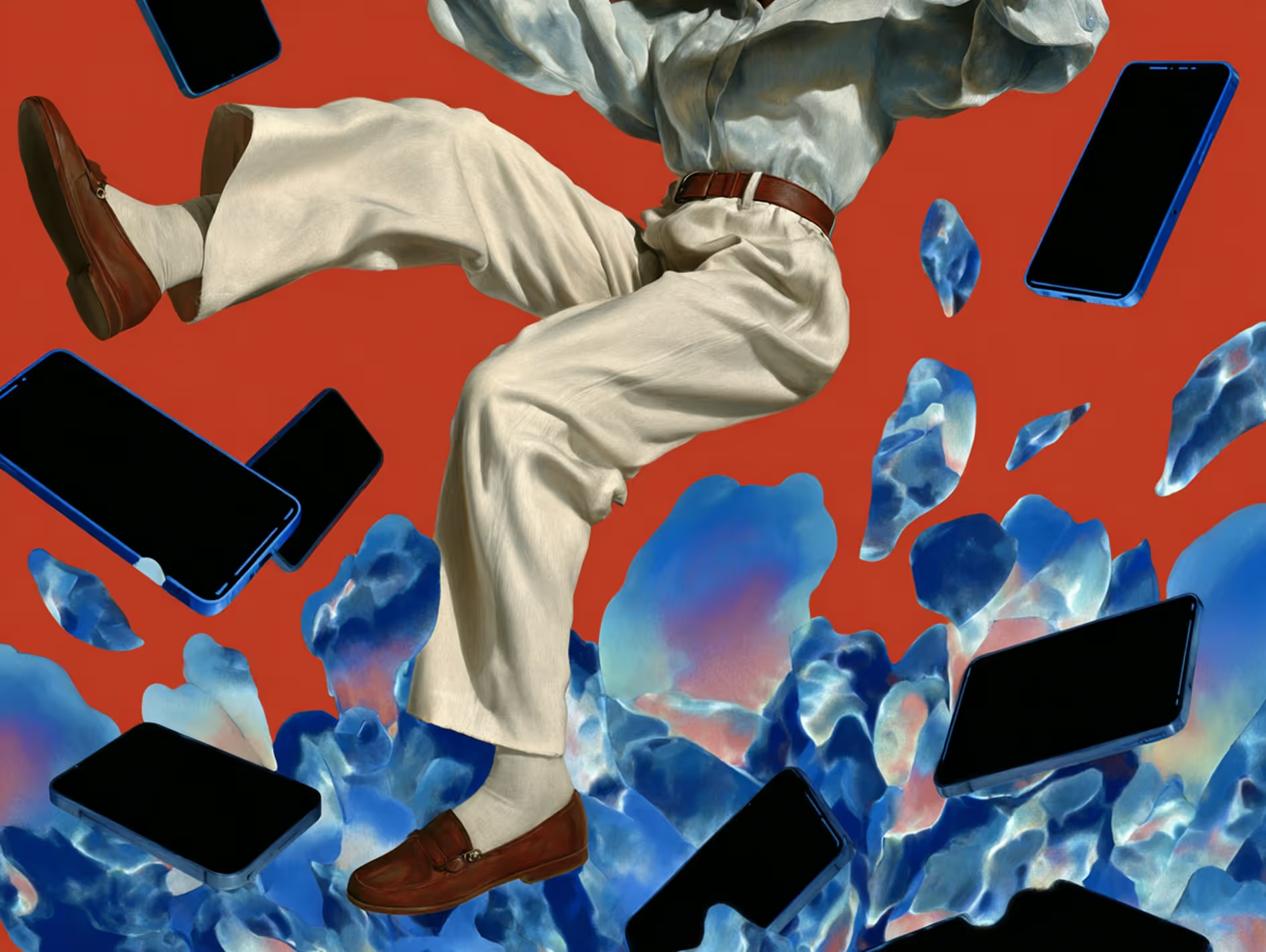
What if They’re Right?
Sometimes the paranoia isn’t wrong; just misdirected.
You are being watched and tracked. Your data gets mined. Your clicks, conversations, and biometrics are all packaged, sold, and used to manipulate your behavior.
But gang stalking takes that very real systemic horror and makes it personal. It’s not that capitalism is crushing you — it’s that Becky from apartment 3B is helping them do it.
And when that misdirected fear festers, it mutates.
In the past decade, multiple perpetrators of mass violence cited targeted harassment and delusional stalking in manifestos and videos. Stephen Marlow gunned down four neighbors in Ohio, claiming in a video that he was “manipulated by telepathic mind control agents.”
There’s no CDC public education campaign or Surgeon General TikTok warning because this isn’t treated like a public health emergency.
But it is one.
And the paranoia is being weaponized against the wrong enemy.
We Built the Panopticon and Called it a Playground
Gang stalking is the logical endpoint of a society that runs on surveillance, fear, and isolation.
The algorithm doesn’t need you to believe in gang stalking. It just needs you to hesitate.
If you linger for one extra second on a video called “I caught my neighbor spying on me,” your feed suddenly becomes 90% shadow people, psychic warfare, glitch-in-the-Matrix clips, and basement dwellers connecting imaginary dots between CIA patents and light pole flickers.
Every platform gets built to serve you more of what makes you react: rage, fear, dread, or disgust. You are not a person. You are a dopamine piñata being whacked open by invisible hands until your paranoia turns into productivity.
Content = currency = reality.
So when a girl named Katie from Iowa gets 4 million views on a video called “My Mom is part of a covert gang stalking ring (I have proof),” she isn’t joking. She isn’t cosplaying. She’s spiraling, and we’re incentivizing the descent.
Every viral post is a neuron in a collective psychotic break.
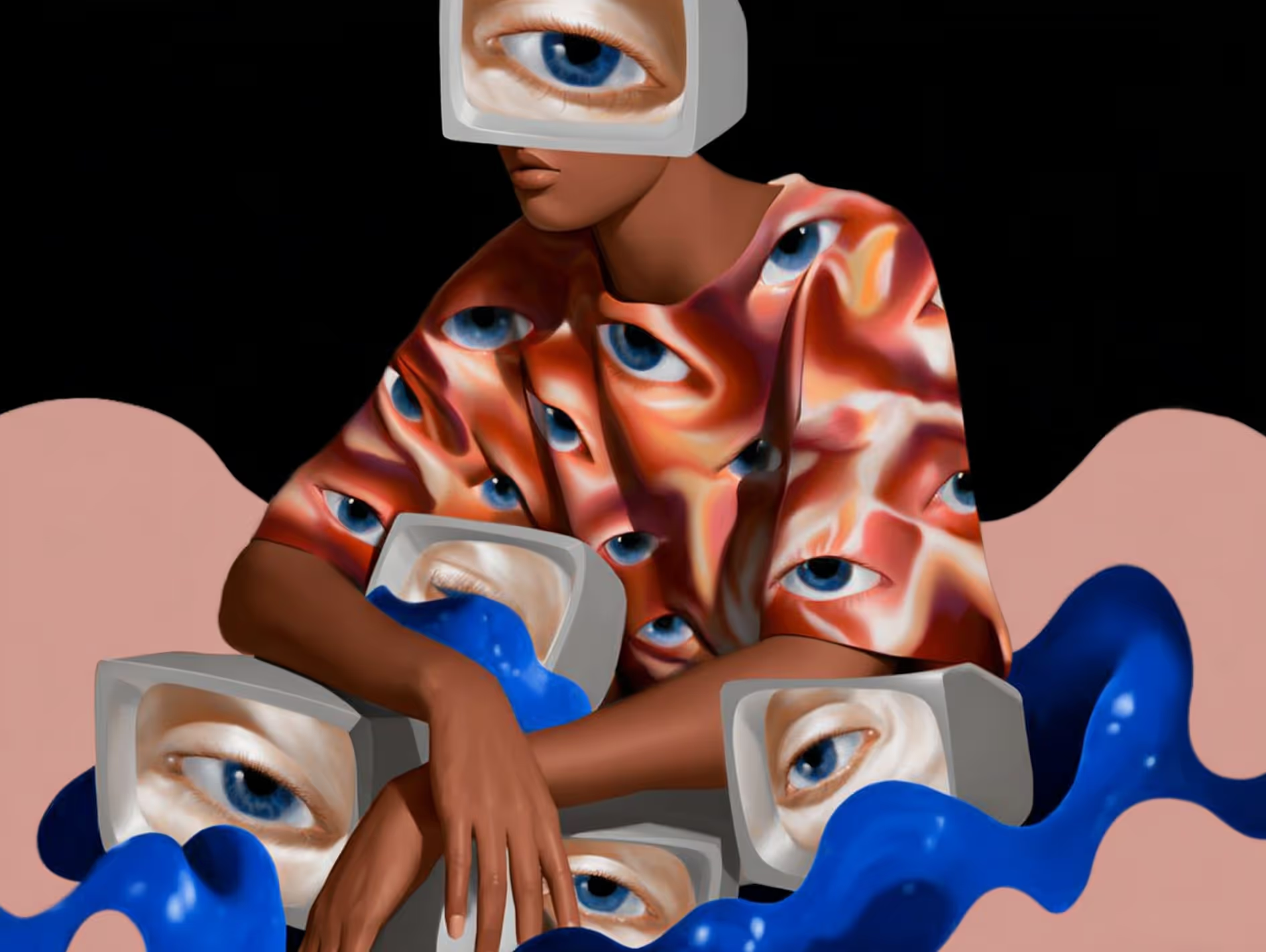
There are no more bystanders
“But I’m not like that,” you say, smugly reading this on your third browser tab while your Ring cam pings again.
Don’t kid yourself. You’re part of it, too.
You’ve watched “Karen freakout caught on cam” compilations like it’s National Geographic for the mentally ill. You’ve tagged your friend in a “crazy neighbor” video with crying emojis. In the comments, you’ve said “leave your home” to a stranger with a public delusion.
You are part of the machine. You are chewing up someone’s mental unraveling and shitting it back into the feed.
You think it ends at watching? You’re the Greek chorus of someone’s paranoid theater. You might already be the villain in a story you’ll never read.
What the hell is going on?
Social media is absolutely festering with this shit right now.
Here are real things you can find with zero effort:
- A girl crying because she thinks her boyfriend is a “handler” planted by a covert op.
- A guy who believes his city buses are syncing up on purpose to trap him in a time loop.
- A woman live-streaming her empty kitchen because the vibrations from her toaster are sending her messages in Morse code.
The hashtags are sanitized — #awakening, #truthseeker, #targetedindividual — but the vibe is pure psychotic break.
“I know this might sound crazy, but I’m literally shaking as I type this. I’m convinced my gang stalkers are putting dewormer in my lattes. No matter where I go — whether it’s a local coffee shop, a big chain, or even a place I’ve never been before — I can taste it.” Anonymous post, r/Gangstalking
This is what happens when mental illness meets engagement farming in a society with no healthcare, no spiritual grounding, and no exit door.
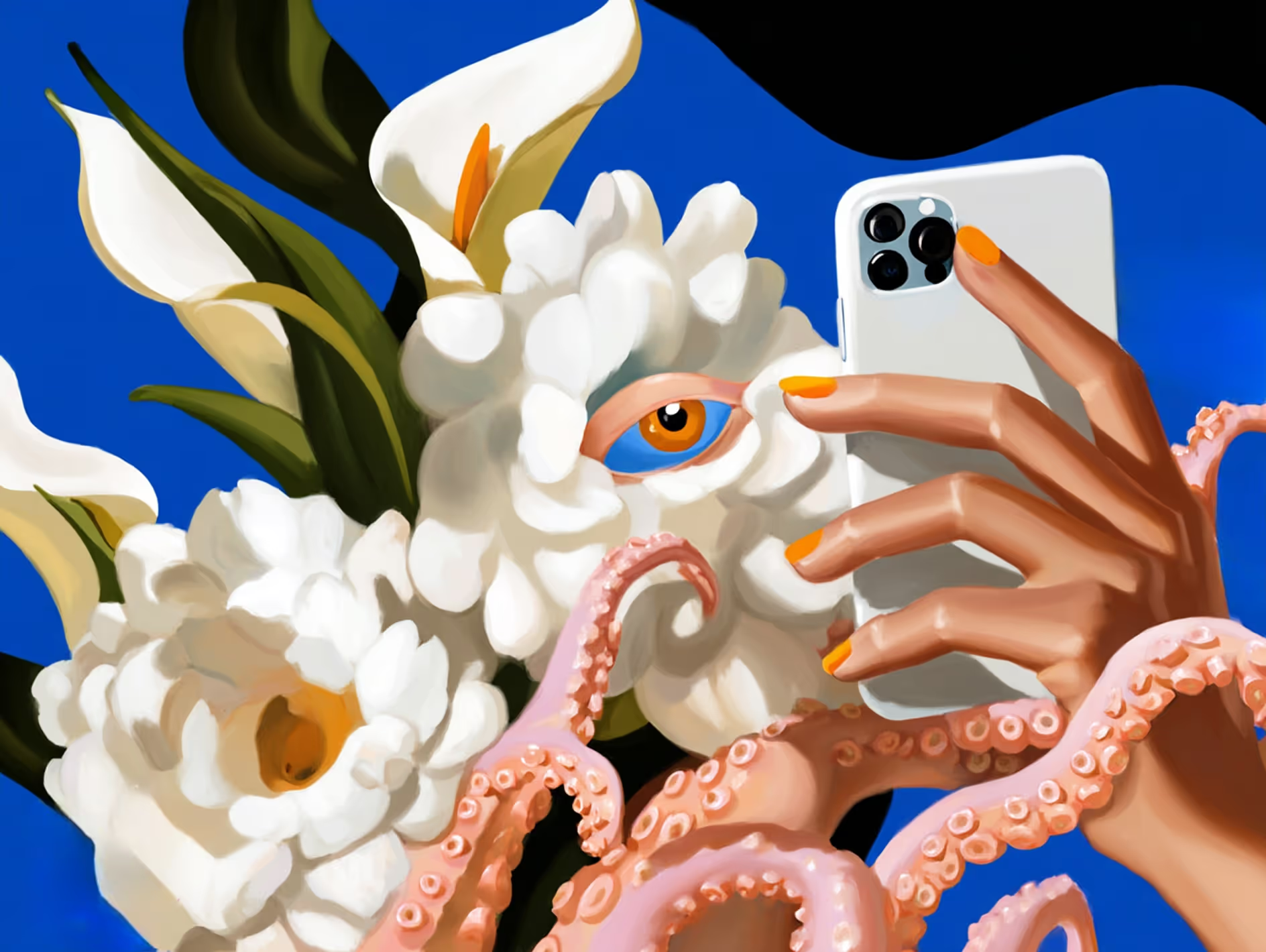
You Can’t “Just Log Off”
The classic advice: get your ass outside.
Okay, but do you think someone in a full-blown gang stalking spiral can just log off? You believe the person livestreaming their street corner at midnight because they think their neighbor is a drone operator can just go “hmmm, time for yoga?”
These are survival frameworks. Delusion is a self-defense mechanism in a world that does not protect you.
And anyway — log off and go where? The real world isn’t safer. It’s just less honest about how much it wants to kill you slowly.
And worst of all? They’ve already burned the bridge behind them. They’ve made 10 videos about it. They’ve named names. They’ve live-streamed their breakdown. They can’t walk it back. They can’t undo the narrative. Logging off wouldn’t just mean leaving the only space where they feel seen — it would mean dismantling the identity that’s kept them alive.
{{dark-side}}
Online Delusion is Contagious
We need to talk about mass psychosis like it’s a public health crisis — because it is.
You can’t blame the internet for schizophrenia (that only affects less than 1% of the U.S. population, according to estimates). Still, this kind of mass delusion shares similar symptoms and seems to have, unfortunately, perfected the delivery model.
This generation crowdsourced, livestreamed, monetized, and wrapped mental illness in Canva quotes about “trusting your intuition.” Aestheticized psychosis is not flagged, slowed, or paused. It’s promoted and placed between mascara reviews and meal-prepping influencers, just another flavor of lifestyle content.
“Gaslight, gatekeep, girlboss?”
Try “Glitch, surveil, gang stalk.”
There is no Light at the End of This Tunnel
Let’s not pretend there’s a tidy bow on this one. We won’t fix this with a podcast episode or a social media detox.
Gang stalking isn’t wrong in the way people think.
They’re (probably) not targeted by some neighborhood watch Illuminati — but they are systemically crushed by tech, surveillance, loneliness, poverty, climate dread, and collapsing institutions. And those forces are silent, invisible, and unaccountable.
So we invent villains. We invent watchers. We invent gang stalkers.
Because something has to be responsible for how fucked up it all feels.
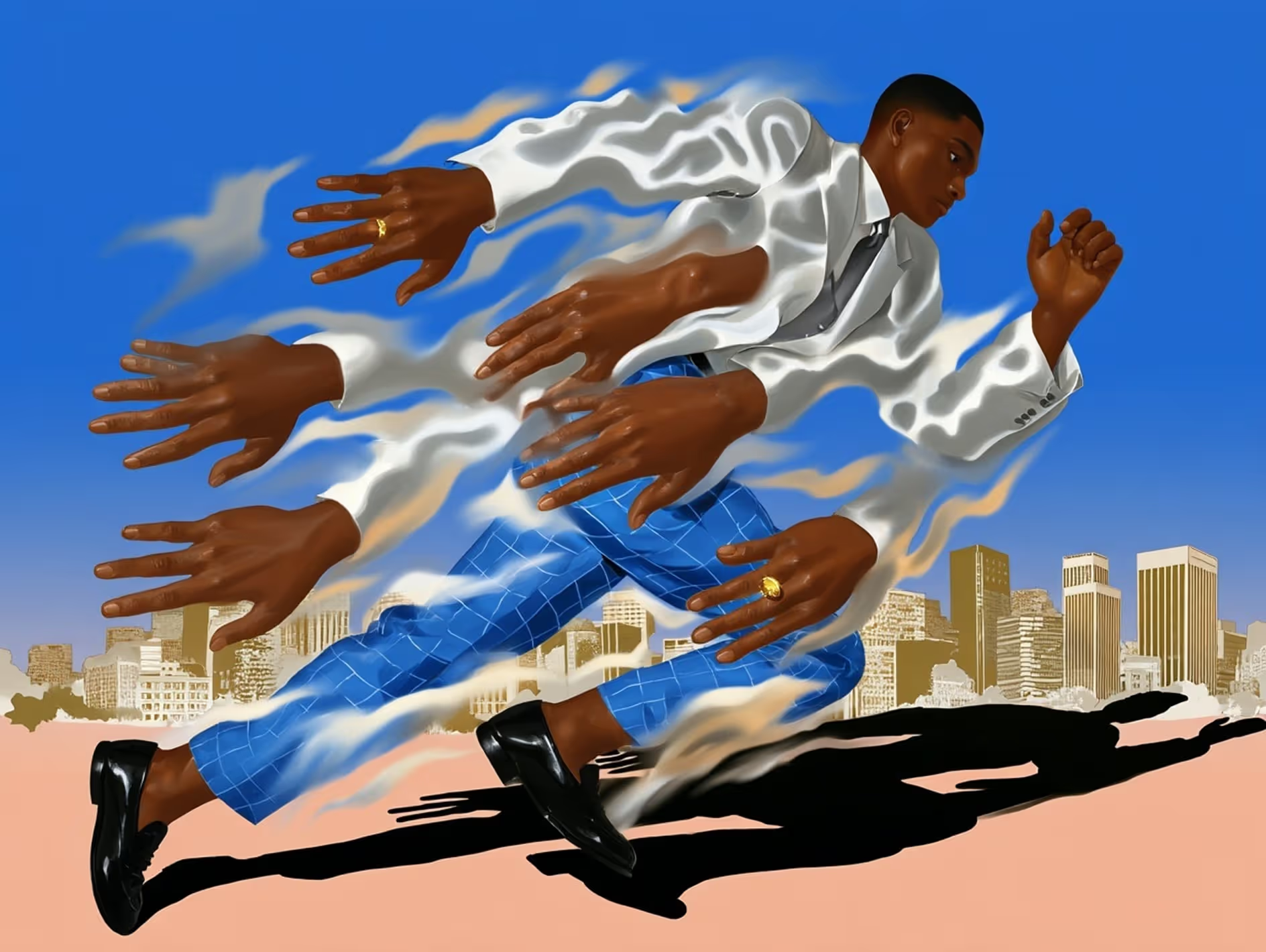
A Sincere Sign-Off
If you think you’re being gang stalked, I’m not going to tell you you’re wrong.
I’m going to tell you something worse: They don’t care.
The machine chewing through your sanity isn’t paying attention to you; it’s too busy optimizing your content. You’re not the chosen one. You’re not the center of a plot. You’re the collateral damage of a profit model.
And no one’s coming to stop it.


America-Side Story: Gang Stalking

It’s no secret that we Americans seem to have trouble connecting with each other — and I’m not even here to talk politics, baby. From declining rates of community activities to endless speculation on the male loneliness epidemic (maybe sign up for a bowling league, men!), everyone seems to be feeling lonelier but not… doing anything real about it.
Why go out into our communities where there are OTHER PEOPLE when we can simply vibe at home, on our Big Internet (laptops), Small Internet (phones), streaming services, and dinner that is just a few clicks away (making sure to select “no contact delivery” aka “please leave at the door and never speak to me for I Am A Lighthouse”)?
We are all Logged On, but in our own little lanes, bumpers firmly in place.
Online isn’t all bad, either. There’s power in connection, in finding your people despite rude obstacles like geology and time zones. But that ability to connect can also be dangerous when it fuels unhealthy levels of vigilance and anxiety, ending in a phenomenon like gang stalking.
What is Gang Stalking, Exactly?
If you didn’t click through from our companion piece for the deep dive, I’ll give you the TL;DR. “Targeted individuals” are what people who experience gang stalking call themselves. They describe coordinated efforts by large groups of people — the gangs in question — to surveil and harass them.
Neighbors aren’t just neighbors. Coworkers aren’t just coworkers. The man running the food truck? You get it. They’re all paid actors watching the target’s every move and coordinating their actions to unsettle and harass the target through sound (no, but really, WHY is your toaster doing that??) or mysterious black cars in traffic or helicopters flying overhead.
Maybe all of the above.
It’s terrifying and isolating for those affected. Friends and loved ones don’t believe them, because why would [faceless entity of choice] devote untold resources to making the toaster beep at specific intervals for the person whose entire job is [perceived as mundane but absolutely necessary to society today]?
It’s not as fresh a phenomenon as you might assume, either — it predates COVID isolation.
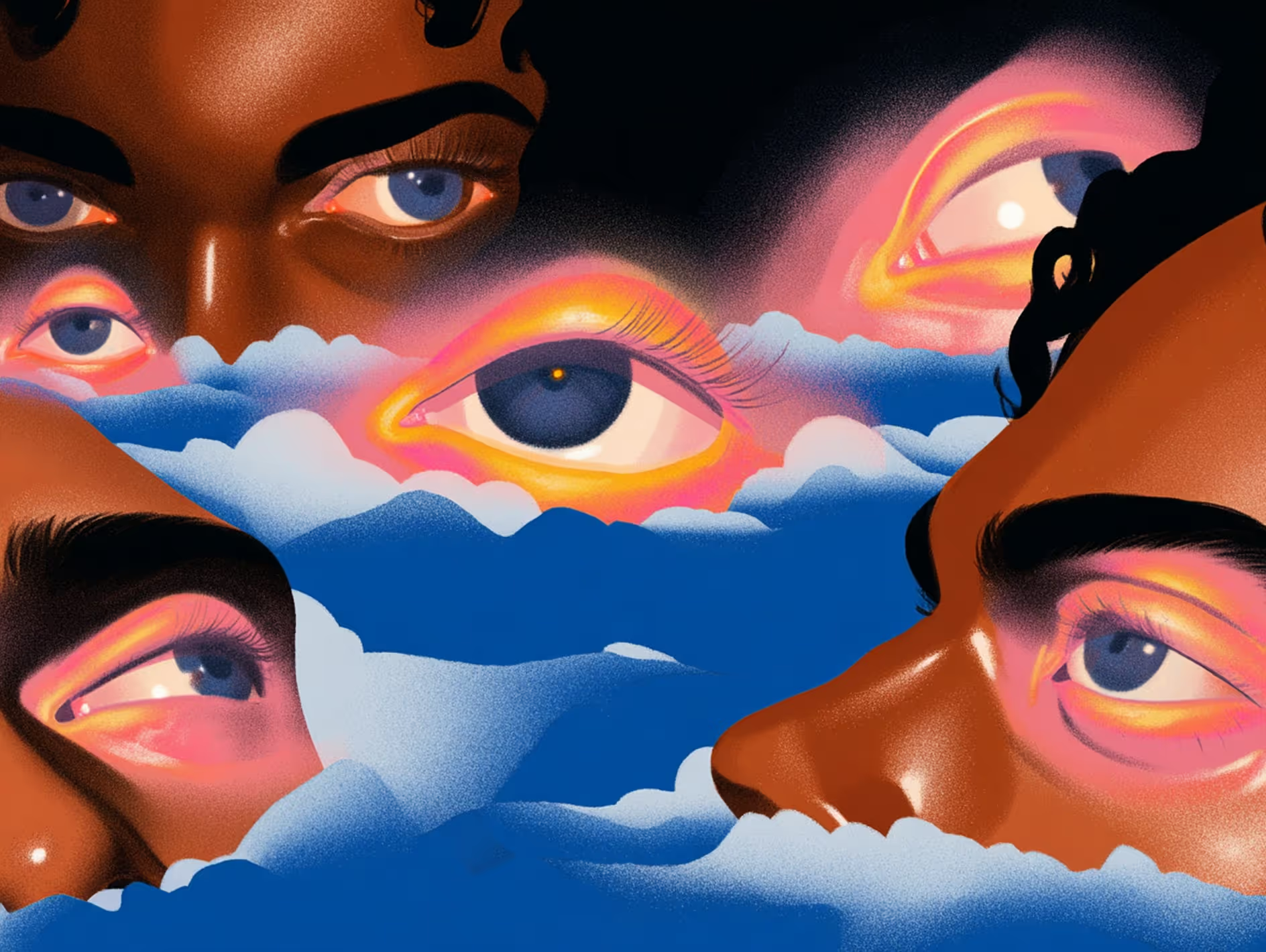
How Did We Get Here?
In 2010, the New York Times Magazine talked about the Americanization of Mental Illness. The DSM rules us all and not just domestically, but globally; the United States somehow managed to corner the market on research and conferences despite consistently ranking last in healthcare outcomes (including mental health) against similar nations.
The summary is this: “It means that a mental illness is an illness of the mind and cannot be understood without understanding the ideas, habits and predispositions — the idiosyncratic cultural trappings — of the mind that is its host.”
The lack of connection most of us feel in our daily lives is probably part of why we are here, asking how a not-insignificant portion of the population thinks a helicopter passing overhead means they are being Watched For A Nefarious Purpose.
What’s a Shared Delusion Among Friends?
It’s one thing to look at your morning toast and see your own Personal Jesus in it; it’s another to convince others it’s there, too. And it’s yet another to find fellowship with others experiencing their unique Personal Jesus-in-toast moments each day, afraid no one else will believe them.
Experts are still teasing out where exactly gang stalking falls along the spectrum of harassment or paranoia, conspiracy or delusion. How do you address a group of people who believe they’re being tracked, but in different ways, on an individual level? America’s usual answer is to throw some drugs at it, but also good luck affording them! Or finding a provider to prescribe them in the first place.
I do not have a solution to the complex issues around modern needs for human connection — for being seen, for feeling heard and valued — increasingly fractured by technology and the ease of isolation, at least not from a mental health standpoint (unlike other tech bros I know I am not a mental health expert and therefore am aware that I am unqualified to ~*diSrUpT*~ this particular industry).
What I do have is a dark sense of humor and an outlandish proposal: let’s make shared delusion FUN again!
If insurance won’t cover anything and lots of people don’t have it anyway, why not D A N C E ourselves clean?
Make America Dance
A lot of weird stuff has affected large groups of people throughout history, like dancing plagues and meowing nuns (colonialism stopped that phenomenon before it brought that to the New World, I guess). While mass hysteria is not the same as a shared delusion, there is potential here to convert the worry of being watched into the joy of boundless cardio.
While the heyday of flash mobs still haunts us as a society, this could be a way of harnessing the power of TikTok dances. For those afflicted by gang stalking, we can say: Yes, the [insert faceless entity of choice] is watching you, but that’s just because it wants to see your sick dance moves.
You tell me if this is worse than spending months trying to find a mental healthcare provider only to be denied by your insurance, if you’re lucky enough to have any in the first place.
That is acceptance, validation, heart-health-boosting cardio, and community building. This is Zumba class at the YMCA on a scale we’ve possibly never seen before. From a healthcare standpoint, this approach is dismissive of real mental health struggles faced by vulnerable populations, making it the perfect solution in America! (Again, we rank at the bottom for this.)
I’m sure the current Secretary of Health and Human Services would agree. BYO roadkill snacks for the dance breaks.
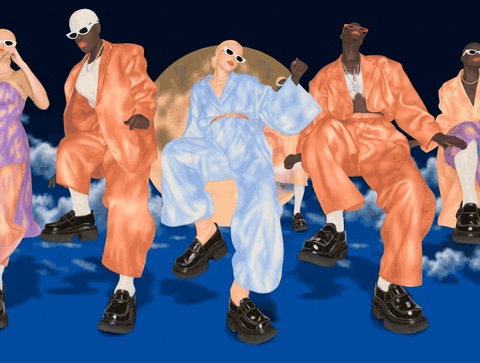
© 2026 Manychat, Inc.

